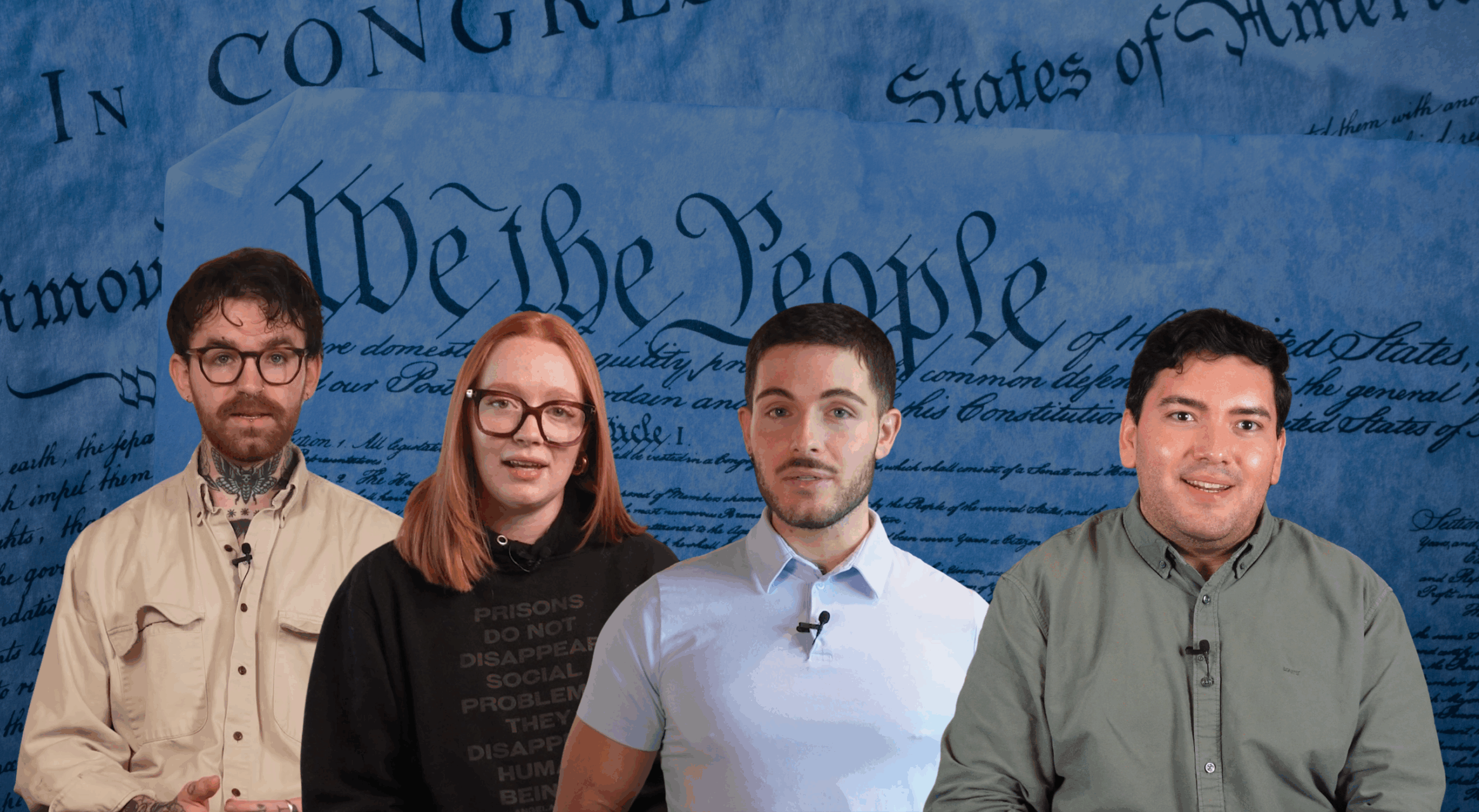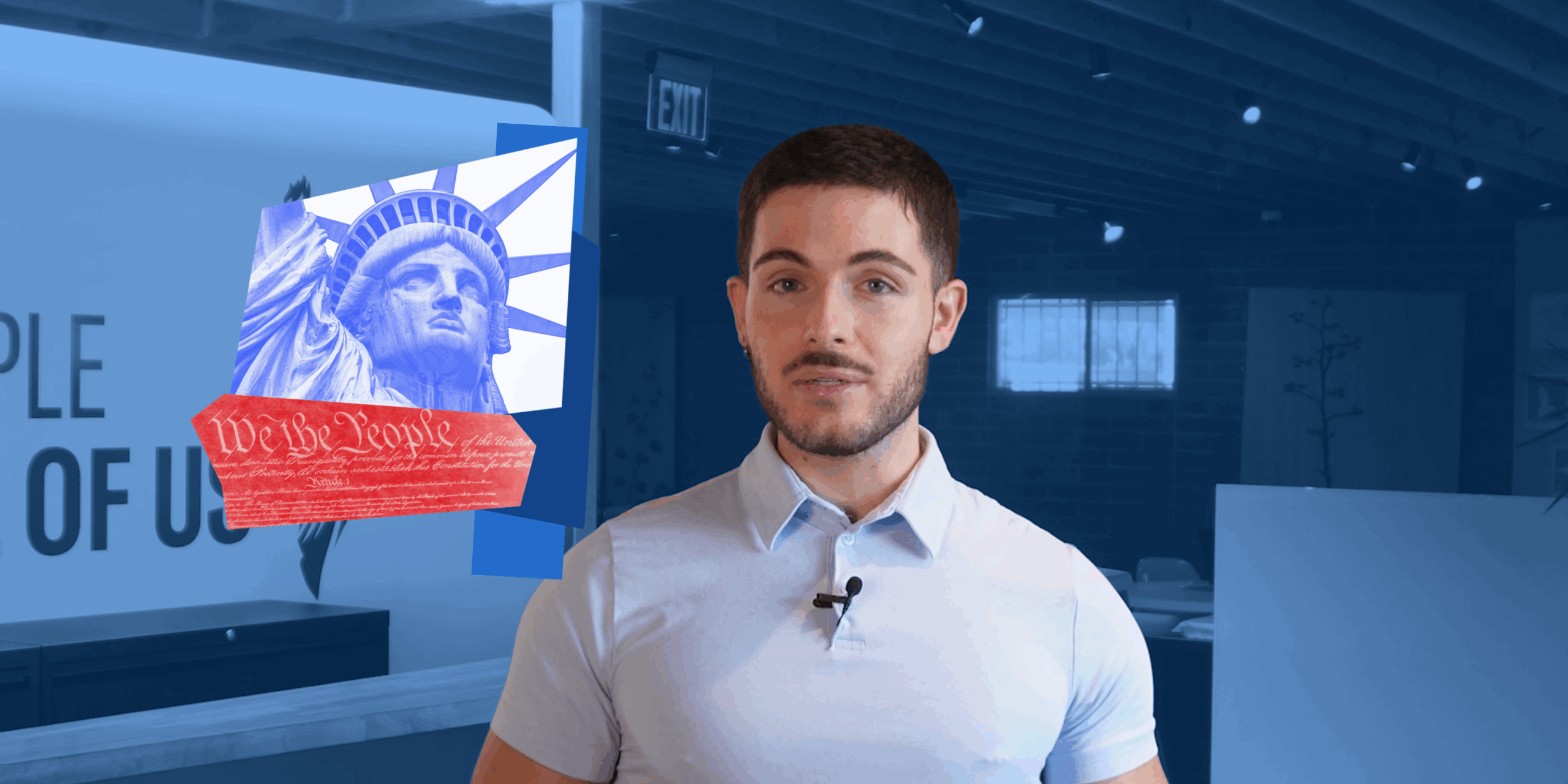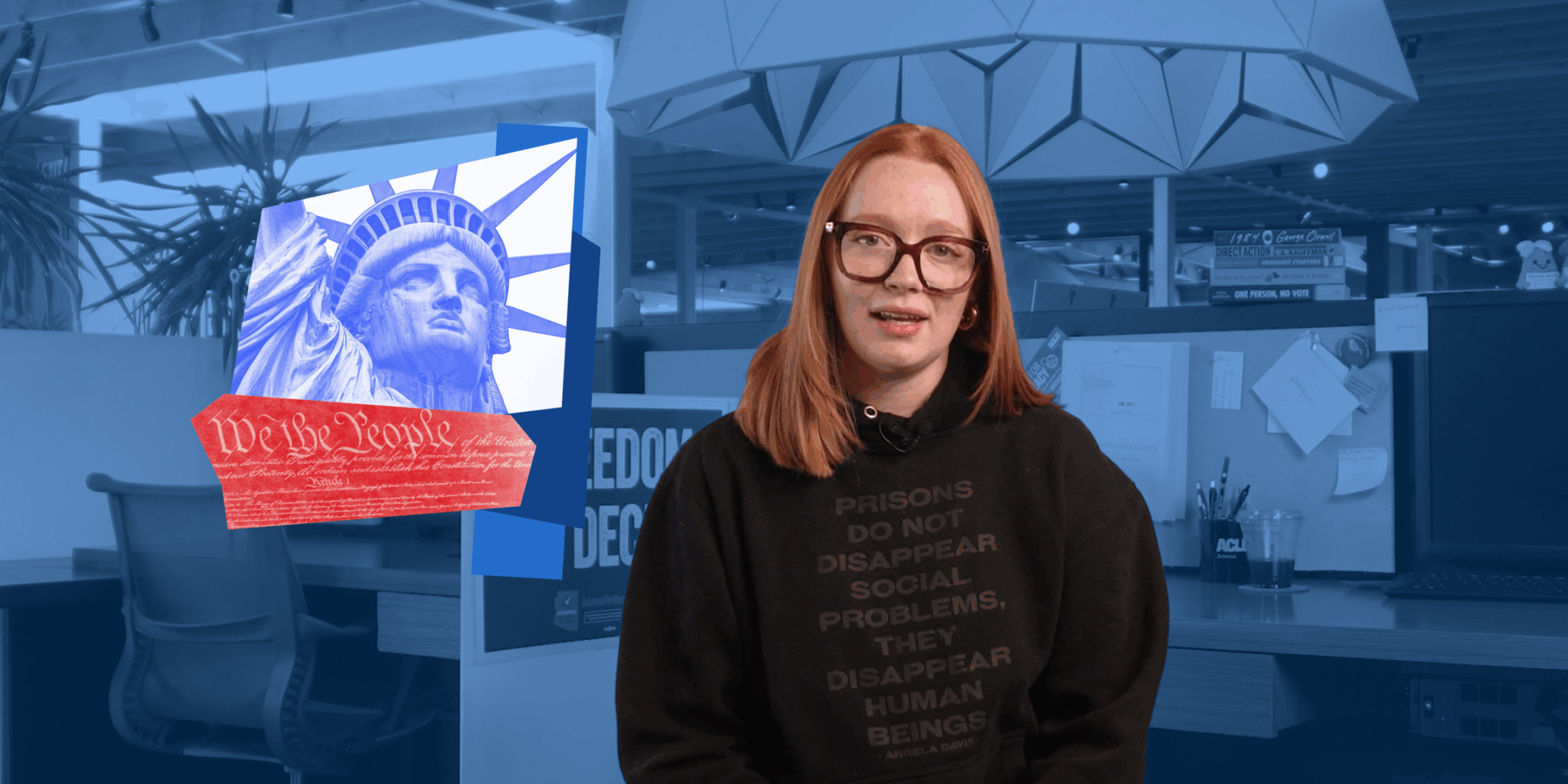Office Closure: December 19 - January 4
The ACLU of Arizona is closed for the holidays! We will resume normal operations beginning January 5.


Video Series: First Amendment 101
Last updated on October 31, 2025
The First Amendment to the U.S. Constitution is only 45 words, but those words are powerful. They protect our right to dissent, to question power, and to speak freely without fear of government retaliation.
Here's a full video series about the First Amendment to help you make sure you know your rights!
First Amendment 101: An Introduction to the Five Freedoms
This is the first video in our series where we break down the First Amendment of the U.S. Constitution and explain the five core freedoms it protects: freedom of speech, freedom of religion, freedom of the press, freedom to assemble, and freedom to petition. Learn what these rights really mean, why they matter today, and how they protect your ability to speak out and hold the government accountable.
The Freedom of Speech
Is flag burning legal? Can you criticize your school board without getting in trouble? In this second episode of our First Amendment series, we break down the freedom of speech: what it protects, what it doesn’t, and why context matters. From landmark cases like Texas v. Johnson to the limits around incitement, threats, obscenity, and defamation, we explain how courts interpret this foundational right.
The Freedom of the Press
What protects journalists from government censorship? What happens when the press uncovers uncomfortable truths? In this episode, we break down freedom of the press — what it means, why it matters, and how it protects both reporters and everyday people. From historical cases like the Pentagon Papers to today’s press freedom battles, we explore the role of the media in keeping power in check and democracy alive.
The Freedom of Religion
Picture this: It’s your first day at a new school. You’re still figuring out where to sit and wondering which hallway leads to the cafeteria when your teacher says, “Everyone, bow your heads for prayer.” You don’t practice this religion. You don’t even know the words to the prayer. Now what? Are you supposed to follow along? Can you just stay silent? Can a public-school teacher even say that?
The Freedom to Petition and Assemble
Can you be arrested for holding a sign at a rally, marching with a crowd, or speaking out at a city council meeting? The short answer: you shouldn’t be. But it can be more complicated depending on when, where, and how those actions occur. Let’s break down what the First Amendment actually says about your right to protest and petition the government, why those rights matter, and how they’re being challenged today.
Related Content
- Free Speech
First Amendment 101: The Freedom of Speech

- Free Speech


